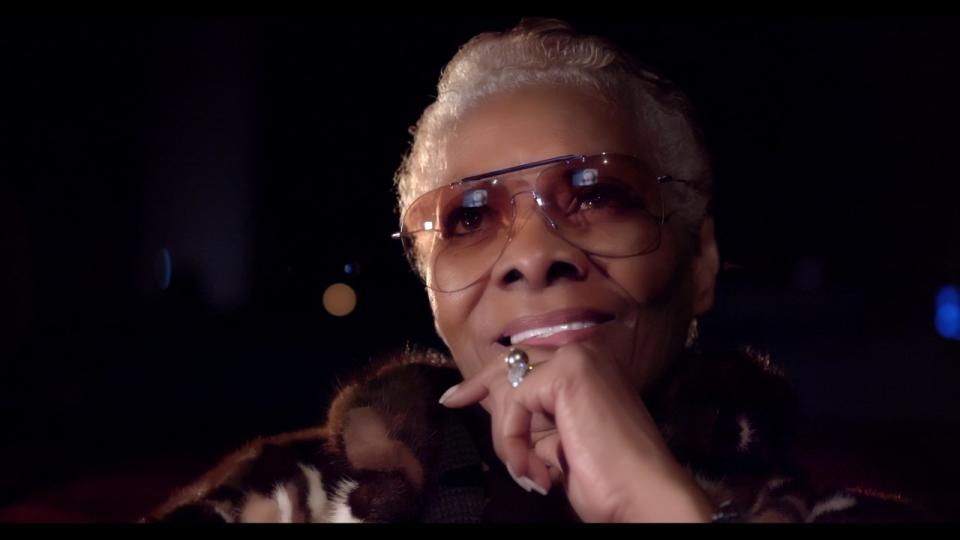‘Dionne Warwick: Don’t Make Me Over’ Review: A Sweet and Sanitized Look at an Icon

In a year that’s seen Hollywood attempt to tell Aretha Franklin’s story twice, watching a documentary on Dionne Warwick is a breath of fresh air, not just because Warwick had a different musical trajectory but because there’s more focus on authenticity than imitation. “Dionne Warwick: Don’t Make Me Over” isn’t just a celebration of its subject, but of how her music inspired other Black entertainers. Directors David Heilbroner and Dave Wooley certainly understand their subject — Wooley is credited as a writer on an in-production biopic on Warwick — though .
Before she became the Queen of Twitter, Dionne Warwick was winning amateur night at the Apollo theater. This feat has been accomplished by only a few Black women and it immediately placed her among the greats like Ella Fitzgerald, Sarah Vaughan, and Billie Holiday. It’s a moment that is returned to again and again throughout the 95 minutes of “Don’t Make Me Over,” and it’s at the heart of what the documentary is truly about: Warwick as a musician. Talking heads like Snoop Dogg and Alicia Keys discuss Warwick’s influences on their work, while older stars like Chuck Jackson discuss the history of Black music as Warwick was coming up.
More from IndieWire
Since Warwick’s music is the foundation for everything, it’s no surprise that Heilbroner and Wooley devote several minutes to archival footage of Warwick singing. These moments could feel like easy ways to hit a feature-length runtime but, coupled with Keys and the other subjects analyzing Warwick’s musical style, it gives an added depth to how the artist stood out. Her music was as melodious as it was powerful — the performance that ends the film has Warwick sustaining a note for what feels like 20 minutes — but it was also completely unlike other Black performers at the time.
Warwick discusses how being a Black woman singing pop songs was considered groundbreaking at the time and caused problems in how she was marketed. Her album was released in Europe with a white woman on the cover and, as she explains, many listeners didn’t know she was Black when she started out. Her ability to transition and capture both Black and white audiences was also breaking barriers, but it led to Warwick being accused by certain members of the Black community of being a sellout.
This point is presented as apocryphal with no interview subjects explaining it, and it’s never examined with any sense of depth. Even more surprising is that no one, including Warwick herself, is asked about her working strictly with white producers, most famously Burt Bacharach.

Wooley Entertainment
That point is even more important at the beginning of the documentary when Warwick discusses how she was supposed to record a certain song by Bacharach meant to be her big break. But Bachrach decided to give it to a white man instead. For him, the decision was purely business sense and it’s left at that. Warwick’s thoughts aren’t documented, and it’s unclear whether she felt any anger or hostility toward it. For all of Warwick’s sprightliness, it’s often hard to get a bead on how she truly felt about things. The concept of racism is presented as something outside the music industry, as Warwick’s rise started to coincide with the Civil Rights Movement.
Warwick does get in a good jab when discussing her work for amFAR. The singer was one of the first celebrities to support the gay community when AIDS first erupted and, in fact, donated all the royalties from her song “That’s What Friends Are For” to AIDS research. When asked, ironically by an amFAR member, about getting then-President Ronald Reagan to say the word “AIDS,” Warwick talks about how angry the President got.
Because of how little of Warwick’s personal life is discussed, the film gives off a veneer of sanitization. Warwick’s marriage to Bill Elliott is limited to two lines of dialogue, while a video clip where she admits to dating Sammy Davis, Jr. is never discussed. Her relationship with her two sons also gets little exploration outside of them describing her as a good mother. There seems to be far more discussion about her cousin, Whitney Houston, especially at the end, than anything else in Warwick’s life, and that feels out of place, as if the filmmakers had to include it to give the documentary a deeper connection for those under 40.
It’s frustrating because even relying on what most people know about Warwick yields far more fascinating material than just her musical work. Warwick became a supporter of the Psychic Friends Network, included toward the film’s end when everyone comments on how her private life played out in the public eye, but why not discuss why she would lend her support to that cause? An even more intriguing note comes when Warwick discusses her antipathy toward the lyrics of various ’90s gangster rappers. Warwick became a vocal critic of the genre and went so far as to invite Snoop Dogg and Tupac Shakur to her house, famously asking them to “call me a ‘bitch.'” That’s worth a whole documentary in itself.
“Dionne Warwick: Don’t Make Me Over” is a fun and sweet look into the life of the performer. Her place in history is examined with suitable skill. Just don’t expect a deeper diver or the veneer of perfection to be mussed.
Grade: B-
“Dionne Warwick: Don’t Make Me Over” world-premiered at the Toronto International Film Festival. It is currently seeking U.S. distribution.
Best of IndieWire
Sign up for Indiewire's Newsletter. For the latest news, follow us on Facebook, Twitter, and Instagram.

